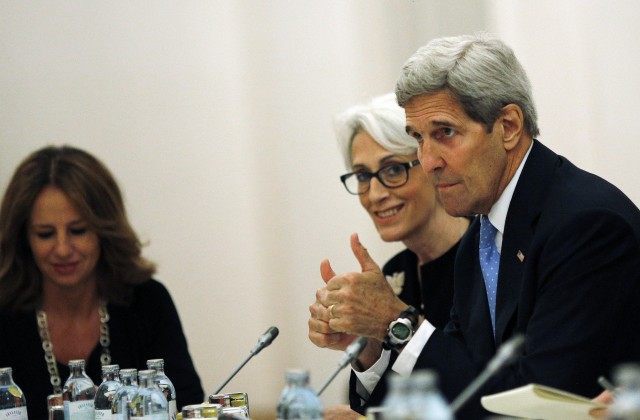VIENNA, Austria – After more than two weeks of marathon negotiations, Iran and six world powers appeared close to a historic nuclear deal that would bring sanctions relief in exchange for curbs on Tehran’s atomic programme, diplomats said today.
But U.S. Secretary of State John Kerry cautioned that some difficult issues remained on the 16th day of ministerial negotiations between Iran, the United States, Britain, France, Germany, Russia and China.
“I think we’re getting to some real decisions,” Kerry told reporters in the Austrian capital. “So I will say, because we have a few tough things to do, I remain hopeful. Hopeful.”
Several diplomats close to the talks said an agreement that would end more than a year and a half of negotiations could come as early as on Sunday. In a sign that something might be in the works, both Russian Foreign Minister Sergei Lavrov and Chinese Foreign Minister Wang Yi were expected to join the talks.
A senior Iranian official echoed Kerry’s cautious optimism.
“The deal is within reach today,” a senior Iranian official told Reuters. “But some issues remain that need to be resolved by foreign ministers.”
Iran and the six powers involved in the talks have given themselves until Monday to reach a deal, their third extension in two weeks, as the Iranian delegation accused the West of throwing up new stumbling blocks to an accord.
Among the biggest sticking points this week has been Iran’s insistence that a United Nations Security Council arms embargo and ban on its ballistic missile programme dating from 2006 be lifted immediately if an agreement is reached.
“Fighting global arrogance is the core of our revolution and we cannot put it on hold. Get ready to continue your fight against the global arrogance,” Khamenei was quoted as saying. “The U.S. is the true embodiment of the global arrogance.”
But Khamenei did not set any new “red lines” for his negotiators as he did in a tough speech two weeks ago.
Read more at Reuters

COMMENTS
Please let us know if you're having issues with commenting.